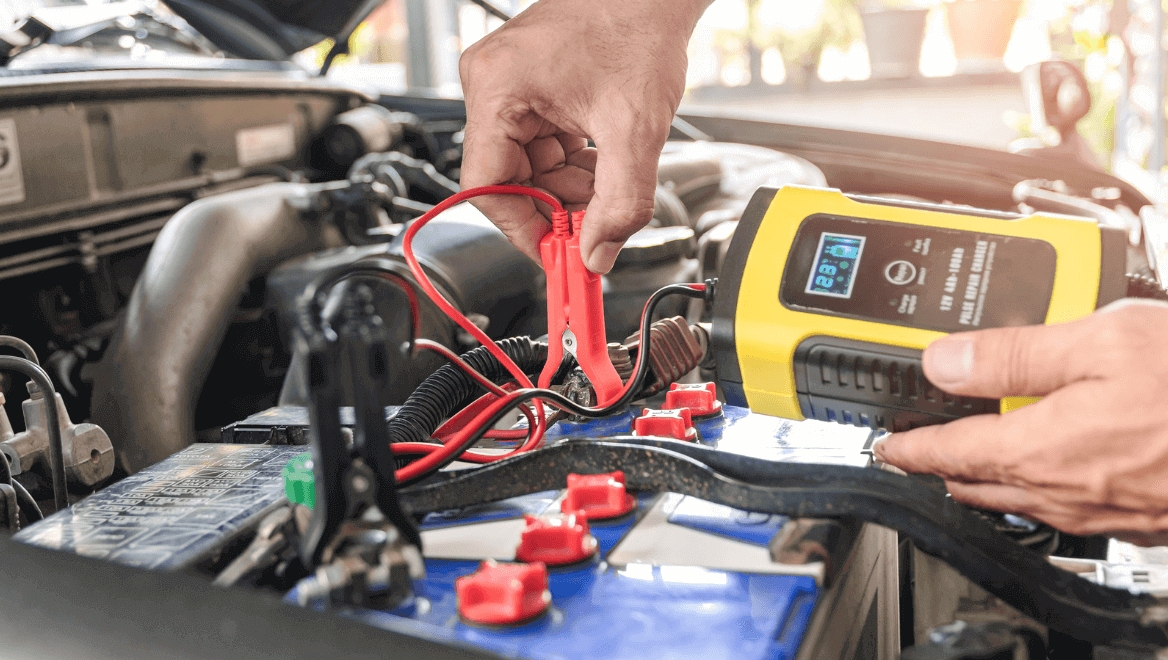Marine batteries and automotive batteries are both critical components in their respective domains, but there are instances where one might consider using a marine battery in an automobile. This article explores the differences between these two types of batteries, the feasibility of using marine batteries in cars, the potential benefits and drawbacks, and practical considerations for such an application.
Understanding Marine and Automotive Batteries
Automotive Batteries: Automotive batteries, also known as starting, lighting, and ignition (SLI) batteries, are specifically designed to provide a high burst of power to start the engine.
Once the engine is running, the vehicle’s alternator takes over, providing power to the electrical system and recharging the battery. Automotive batteries are typically lead-acid batteries, optimized for delivering short, high-current bursts.
Marine Batteries: Marine batteries, on the other hand, are designed for boats and are built to withstand the harsh marine environment. There are primarily three types of marine batteries:
Starting Batteries: Similar to automotive batteries, they provide the high burst of power needed to start the boat’s engine.
Deep Cycle Batteries: Designed to provide a steady amount of power over a longer period, they are used to power accessories and electronics on the boat when the engine is not running.
Dual-Purpose Batteries: A hybrid that can handle both starting the engine and providing deep cycle capabilities, but not as efficiently as the specialized versions.
Can You Use a Marine Battery in an Automobile?
Compatibility: Technically, you can use a marine battery in an automobile, but there are several factors to consider:
Voltage and Amperage: Both marine and automotive batteries typically operate at 12 volts, so they are compatible in terms of voltage. However, marine batteries, especially deep cycle ones, might have different amperage ratings compared to automotive batteries. Ensuring the battery provides sufficient cold cranking amps (CCA) to start the car is crucial.
Size and Terminals: The physical size and terminal configurations might differ between marine and automotive batteries. It’s essential to check if the marine battery fits the car’s battery compartment and if the terminals align correctly.
Charging Systems: Automotive charging systems are designed for automotive batteries. While marine batteries can work, the charging characteristics might not be optimal, potentially leading to reduced battery life.
Benefits of Using a Marine Battery in an Automobile
Durability: Marine batteries are built to withstand more rigorous conditions, including vibrations and harsh weather. This can be beneficial in off-road vehicles or cars used in challenging environments.
Deep Cycle Capabilities: If your vehicle uses a lot of electronics or auxiliary power systems (e.g., RVs or camper vans), a deep cycle marine battery can provide a more reliable power source when the engine is off.
Versatility: Dual-purpose marine batteries offer a compromise between starting power and deep cycle capabilities, making them a versatile option for vehicles that require both.
Drawbacks of Using a Marine Battery in an Automobile
Cost: Marine batteries are generally more expensive than automotive batteries due to their construction and the materials used. This might not be cost-effective for standard automotive use.
Weight: Marine batteries, particularly deep cycle ones, can be significantly heavier than automotive batteries. This added weight might affect the vehicle’s performance and fuel efficiency.
Charging Efficiency: Automotive alternators are designed to charge automotive batteries efficiently. Using a marine battery might lead to suboptimal charging, reducing the battery’s lifespan and performance.
Cold Cranking Amps (CCA): Marine batteries might not provide the same CCA as automotive batteries, especially in colder climates where higher CCA is necessary to start the engine.
Practical Considerations
Assessing Your Needs: Before deciding to use a marine battery, assess your vehicle’s power requirements. If you have a high demand for auxiliary power or operate in rugged conditions, a marine battery might be beneficial.
Installation: Ensure that the marine battery fits securely in the battery compartment and that the terminals are compatible. Improper installation can lead to electrical issues or damage to the vehicle.
Charging System: Consider upgrading the vehicle’s charging system to accommodate the different charging needs of a marine battery. This might involve installing a more advanced alternator or a dedicated battery charger.
Maintenance: Regular maintenance is crucial to ensure the longevity and performance of any battery. Marine batteries might require different maintenance routines compared to automotive batteries, so be prepared for additional upkeep.
Conclusion
While it is possible to use a marine battery in an automobile, it is essential to weigh the benefits and drawbacks carefully. Marine batteries offer durability and deep cycle capabilities, which can be advantageous in certain situations. However, the higher cost, weight, and potential compatibility issues might make them less ideal for standard automotive use. By understanding your vehicle’s power needs and considering the practical aspects of installation and maintenance, you can make an informed decision about whether a marine battery is a suitable choice for your automobile.
In summary, the versatility of marine batteries makes them a viable option for specific automotive applications, particularly where durability and auxiliary power are paramount. However, for typical everyday use, automotive batteries remain the more practical and cost-effective choice.

Leave a Reply